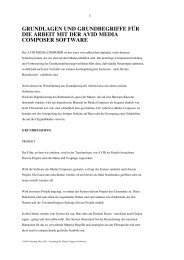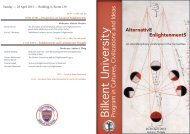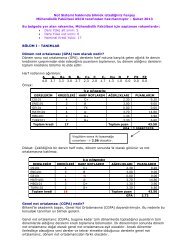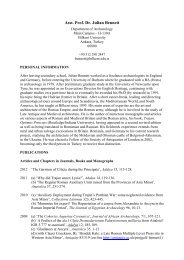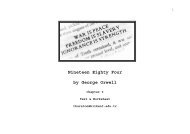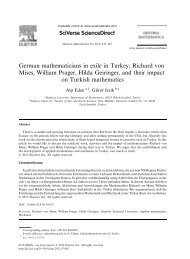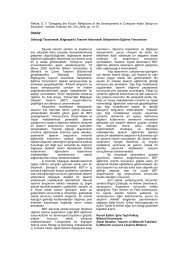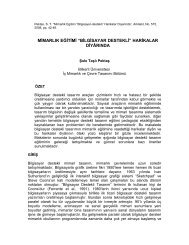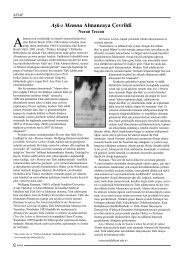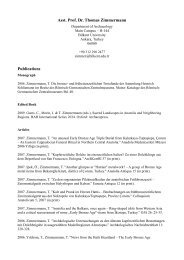The word Berat comes from the Arabic word ... - Bilkent University
The word Berat comes from the Arabic word ... - Bilkent University
The word Berat comes from the Arabic word ... - Bilkent University
You also want an ePaper? Increase the reach of your titles
YUMPU automatically turns print PDFs into web optimized ePapers that Google loves.
hümayun , an imperial order. Regardless of <strong>the</strong> office which issued <strong>the</strong><br />
order, all sultanic documents were generally considered as hükm . <strong>The</strong><br />
register covering orders concerning any financial issue was called "<strong>the</strong><br />
register for financial hükms (orders). A Hükm sent to a governor or an<br />
administrator was a ferman , if it was for an appointment or privilege,<br />
it was a berat or ruus . <strong>The</strong>re are some hükm s with tuğ ra , <strong>the</strong> imperial<br />
monogram, named "clean ahkam - i sherife (respected orders) with<br />
nishan- i hümayun (imperial monogram)". 50 In this kind of document<br />
some places were blank in order to be filled in when necessary. Thus,<br />
according to subject and work, hükm s were given names like ferman,<br />
nishan, berat, tevki', menshur . <strong>The</strong> terms such as hükm - i hümayun,<br />
hükm - i sherif, hükm - i cihan- ara, hükm - i cihan muta, hükm - ü vacibi'l-<br />
imtisal define <strong>the</strong> hükm as a command or a decree. <strong>The</strong> term ferman ,<br />
except in <strong>the</strong> early times, was decisively adopted by Ottoman<br />
diplomatics. In <strong>the</strong> Arvanid Register, <strong>the</strong> earliest land register available<br />
in <strong>the</strong> Ottoman Archives (h 835- 1432), we notice terms repeatedly<br />
used, such as mektub, berat, berat of pasha, biti of pasha, biti, berat of<br />
sultan, biti of beg (governor), order of sultan. <strong>The</strong> <strong>word</strong> pervane was<br />
very rare. Biti and berat were used with <strong>the</strong> same meaning for pashas<br />
and begs, while biti was not used for <strong>the</strong> sultan. Instead, we have biti of<br />
sultan , or hükm of sultan . 51 On <strong>the</strong> o<strong>the</strong>r hand, what <strong>the</strong> register means<br />
by "<strong>the</strong> existence of a hükm by <strong>the</strong> sultan" is, in fact, nothing but a<br />
berat. In <strong>the</strong> same register, as a substitute for "hükm by <strong>the</strong> sultan", we<br />
find "berat by <strong>the</strong> sultan". 52<br />
<strong>The</strong> terms mithal and tevki' have <strong>the</strong> same meaning. In <strong>the</strong><br />
Seljukids of Rum a mithal is a document issued not by <strong>the</strong> sultan but<br />
50 See Hoca Saadeddin, Tacu't- Tevarih , II, 322, for <strong>the</strong> letter sent by Selim I to<br />
İ dris- i Bitlisi dated h. 921/1515, concerning <strong>the</strong> grant of sanjaks, administrative<br />
units, to <strong>the</strong> begs in Diyarbakir who remained loyal to <strong>the</strong> sultan. In <strong>the</strong> letter he<br />
noticed that <strong>the</strong>y were sent a clean "ahkam - i sherife with nishan - i hümayun and<br />
tuğ ra ".<br />
51 nd<br />
İnalc ık (ed.), Hicri 835 Tarihli Suret- i Defter- i Sancak - i Arvanid , 2 edition,<br />
Ankara: 1987, 69, 77.<br />
52 İnalc ık,<br />
(1987), 72, 197, 198.<br />
12





